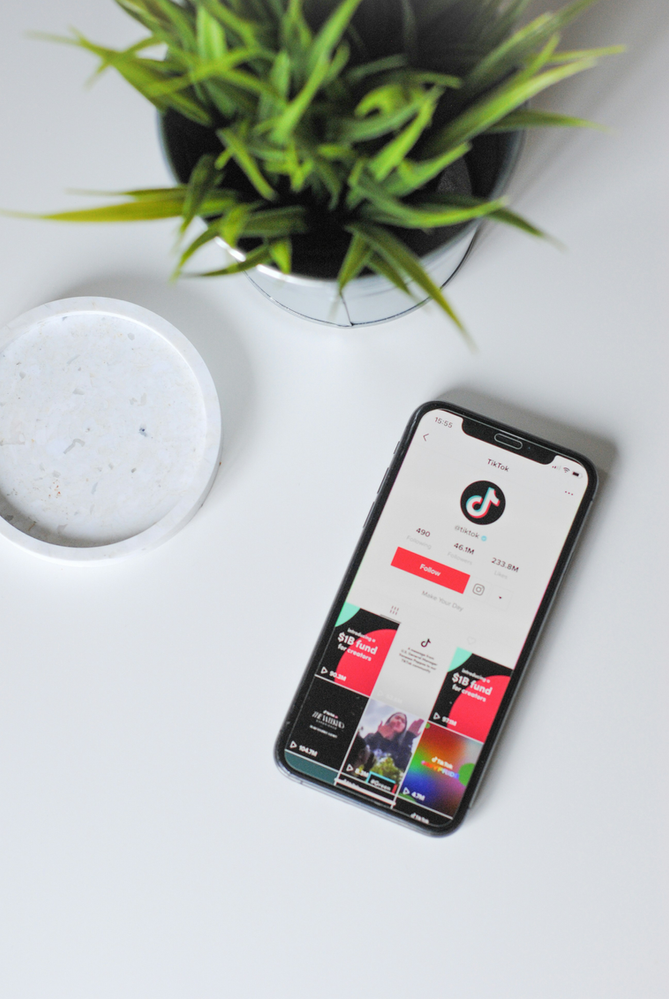In today’s digital age, the rise of social media and the boundless access to mental health-related content have significantly influenced how people perceive and manage their mental health. With a plethora of information at our fingertips, many individuals are increasingly turning to online resources to understand and sometimes diagnose their own mental health conditions. While this trend has undeniably raised awareness and educated countless people about mental health, it also raises important questions about the accuracy and implications of self-diagnosis.
In this blog, we’ll explore the topic of self-diagnosis from the perspective of a holistic therapist. At Be Your Best Self & Thrive, a holistic therapy practice located in St. Petersburg, Florida, we recognize the value of social media in spreading awareness and education about mental health. However, we also emphasize the importance of leaving the diagnosis of mental health conditions to trained professionals. Professional therapists are equipped with the knowledge and expertise to provide accurate diagnoses and effective treatment plans, ensuring that individuals receive the support they need.
Key Take-Aways for Self-Diagnosis, Healthy Social Media Usage, and Professional Diagnoses
Self-diagnosis involves using online resources and social media to identify and label your own mental health conditions without professional evaluation. This practice can lead to misinterpretation of symptoms and incorrect self-labeling.
Self-diagnosis carries significant risks. Without a professional evaluation, you may make harmful decisions about your treatment and overlook the complexity of mental health conditions that require expert understanding.
Mental health professionals have the training and expertise to accurately assess, diagnose, and treat mental health conditions. Their nuanced approach considers your unique context, history, and needs, ensuring you receive appropriate care and support.
Approach social media content as a tool for education and awareness rather than a diagnostic tool. If you identify with symptoms or conditions described online, use that information to guide a conversation with a mental health professional.
Follow accounts that provide evidence-based information and encourage professional consultation. Avoid content that promotes self-diagnosis or suggests quick fixes without professional guidance.
Understanding Self-Diagnosis
Self-diagnosis occurs when individuals use online resources, social media, or other informational sources to identify and label their own mental health conditions without professional evaluation. This process often involves interpreting symptoms or traits discussed online and applying them to one’s own experiences, potentially leading to a self-made diagnosis of conditions like anxiety, depression, or ADHD.
Why Do People Self-Diagnose?
The rise of social media and the internet has made mental health information more accessible than ever before. People are exposed to a constant stream of content that discusses various mental health conditions, their symptoms, and coping strategies. This exposure can lead individuals to recognize certain patterns in their own lives and seek to identify what might be affecting them. The desire for self-understanding, empowerment, and immediate answers drives many to self-diagnose, often in the hope of finding relief or solutions quickly.
Is Self-Diagnosing a Good Thing?
While self-diagnosis can be tempting and even feel validating, it carries significant risks. Without a thorough evaluation by a mental health professional, self-diagnosis can lead to misinterpretation of symptoms, incorrect self-labeling, and potentially harmful decisions regarding treatment or lifestyle changes. It can also overshadow the complexity of mental health conditions, which often require nuanced understanding and professional guidance.
Why Leave Diagnosing to Professionals?
Professional therapists and mental health practitioners are trained to assess, diagnose, and treat mental health conditions with a deep understanding of psychological theories, diagnostic criteria, and therapeutic techniques. They offer a nuanced approach that considers the individual’s unique context, history, and needs. Accurate diagnosis and effective treatment plans require this level of expertise to ensure that individuals receive appropriate care and support.
How Social Media Can Still Help
Social media can be a powerful tool for mental health support when used mindfully. It can:
Raise Awareness: Platforms can bring attention to mental health issues, fostering understanding and reducing stigma. By sharing personal stories and educational content, social media helps normalize conversations around mental health and encourages people to seek help.
Offer Support: Online communities and support groups provide a sense of connection and solidarity. They can be a source of encouragement, empathy, and practical advice from others who have faced similar challenges. This support can be particularly valuable for those who feel isolated or unsure where to turn.
Provide Resources: Social media can direct individuals to credible resources, tools, and professional services. From mental health apps and online therapy options to articles and workshops, these resources can enhance one’s understanding and provide additional avenues for support.
Promote Self-Care: Many social media accounts focus on self-care tips, mindfulness practices, and wellness strategies. These can offer helpful suggestions for managing stress, practicing relaxation techniques, and maintaining a balanced lifestyle.
Highlight Success Stories: Sharing stories of recovery and personal growth can inspire and motivate others. These narratives can provide hope and demonstrate that positive change is possible, encouraging individuals to pursue professional help and engage in their own healing journeys.
Facilitate Education: Social media can be a platform for disseminating accurate information about mental health conditions, treatment options, and coping strategies. Educational content helps increase awareness and understanding, empowering individuals to make informed decisions about their mental health.
By leveraging these benefits while avoiding self-diagnosis and seeking professional guidance, individuals can use social media as a valuable tool in their mental health journey.
Apply What You’ve Learned: Examples of Healthy Social Media Use
To effectively apply what you’ve learned about navigating social media content, consider these real-life scenarios:
Case Study: Positive Social Media Use Imagine someone comes across a TikTok video about managing anxiety. The video offers general tips on breathing exercises and mindfulness techniques. Instead of using this video to self-diagnose anxiety, the viewer appreciates the advice as a way to manage stress better. They take the next step by discussing their experiences with a mental health professional, who helps them determine whether they are dealing with anxiety or simply stress.
Scenario: Inspirational Content Consider an Instagram account dedicated to mental health awareness. This account shares posts about different mental health conditions and offers general advice on self-care. A follower finds the information helpful but recognizes that these posts are not a substitute for professional diagnosis. They use the content to inspire their self-care routines while scheduling a consultation with a therapist to discuss their mental health in a comprehensive manner.
Example: Educational Videos A YouTube channel provides educational videos about various mental health conditions. One video explains the symptoms of depression in a detailed yet accessible manner. A viewer finds the video informative and resonates with some of the symptoms described. Rather than jumping to a self-diagnosis, they use the video as a starting point for a conversation with their healthcare provider, ensuring they receive an accurate assessment and appropriate support.
Practical Tips for Using Social Media Wisely
Use Social Media for Learning, Not Diagnosing: Treat social media content as a source of education rather than a diagnostic tool. If you find yourself identifying with symptoms or conditions described, use that information to guide a conversation with a mental health professional.
Engage with Credible Sources: Follow accounts and creators who provide evidence-based information and encourage professional consultation. Avoid content that promotes self-diagnosis or suggests quick fixes without professional guidance.
Balance Online Information with Professional Advice: Use social media insights to complement, not replace, professional mental health care. View online content as a resource for general knowledge and inspiration, not as a definitive diagnosis.
Participate in Supportive Communities: Join online communities that focus on mental health support and education rather than self-diagnosis. Engage in discussions about self-care and mental wellness and use these interactions to motivate yourself to seek professional help if needed.
Discover more ways of using Social Media in Healthy Ways from our past blog: The Impact of Social Media on Mental Health
By incorporating these examples and tips, you can offer readers practical advice on how to navigate social media content thoughtfully and responsibly, fostering greater awareness while emphasizing the importance of professional diagnosis and support.
Be Your Best Self & Thrive Therapy
At Be Your Best Self & Thrive, a holistic therapy practice located in St. Petersburg, Florida, we support the healthy use of social media for mental health awareness and education. We recognize the value of these platforms in spreading important information and fostering supportive communities. However, we also emphasize the critical importance of seeking professional help for accurate diagnosis and personalized care.
Meet the Therapist: Rochelle Young
One of our therapists, Rochelle Young, is currently accepting clients. Rochelle enjoys using social media and understands how tempting it can be to seek answers to our thoughts and behaviors online. She encourages using social media as a tool for learning and gaining awareness rather than self-diagnosing based on content that resonates with your feelings or actions.
With Rochelle, you can work together with a professional to explore your thoughts, behaviors, and emotions in a comprehensive and supportive environment. She helps you understand the root causes behind your experiences and guides you toward effective coping strategies and treatments. Rochelle emphasizes the importance of professional evaluation and can teach you how to navigate social media healthily, using it as an educational resource rather than a diagnostic tool.
If you are interested in scheduling a free 15-minute consultation with Rochelle Young, Get Started Now!
Meet the Owner: Jamie Molnar
Jamie Molnar, the owner of Be Your Best Self & Thrive, is also a proponent of responsible social media use. Although Jamie is currently on a waitlist, she actively uses social media herself and advocates for leaving self-diagnosis to mental health professionals. Jamie believes in empowering individuals to seek professional care for their mental health concerns, ensuring they receive accurate diagnoses and tailored treatment plans.
Q&A: Understanding Self-Diagnosis and Social Media Use with Be Your Best Self & Thrive
What is self-diagnosis, and why is it becoming more common?
Self-diagnosis occurs when individuals use online resources, social media, or other informational sources to identify and label their own mental health conditions without professional evaluation. This trend has grown due to the widespread availability of mental health information on platforms like TikTok, YouTube, and Instagram. People often seek immediate answers and relief by recognizing patterns in their own experiences.
2. Is self-diagnosing mental health conditions a good idea?
While self-diagnosis can feel validating, it carries significant risks. Without a thorough evaluation by a mental health professional, you may misinterpret symptoms, apply incorrect labels, and make potentially harmful decisions regarding treatment. Professional guidance is crucial for an accurate understanding and effective management of mental health conditions.
3. Why should diagnosing mental health conditions be left to professionals?
Mental health professionals are trained to assess, diagnose, and treat mental health conditions using a deep understanding of psychological theories, diagnostic criteria, and therapeutic techniques. They consider your unique context, history, and needs to provide accurate diagnoses and personalized treatment plans, ensuring you receive the appropriate care and support.
4. How can I use social media responsibly for mental health awareness?
Treat social media content as a source of education and awareness rather than a diagnostic tool. Engage with credible sources that provide evidence-based information and encourage professional consultation. Use insights from social media to guide conversations with mental health professionals, rather than making definitive self-diagnoses.
5. Can social media still be beneficial for mental health without self-diagnosing?
Absolutely. Social media can raise awareness, offer support through online communities, provide resources, promote self-care, highlight success stories, and facilitate education about mental health. By using social media mindfully and seeking professional guidance, you can leverage these benefits to enhance your mental health journey.
6. How can Be Your Best Self & Thrive help me navigate mental health concerns?
At Be Your Best Self & Thrive, our holistic therapists, including Rochelle Young and Jamie Molnar, support healthy uses of social media for mental health awareness. Rochelle is currently accepting clients and can help you understand your thoughts and behaviors professionally, guiding you through the process of finding accurate answers and solutions. Jamie, although currently on a waitlist, also emphasizes the importance of professional diagnosis and responsible social media use.
7. What practical steps can I take to balance social media use with seeking professional help?
Use social media for learning and inspiration, but always follow up with a mental health professional for accurate assessments and tailored advice. Participate in supportive online communities, engage with credible sources, and balance online information with professional guidance to ensure a well-rounded approach to your mental health.
These questions and answers provide a comprehensive understanding of self-diagnosis, the role of social media, and the importance of professional mental health care, helping you navigate your mental health journey more effectively.
Conclusion
In today’s digital world, social media plays a significant role in shaping our understanding of mental health. While it offers valuable information and support, it’s crucial to approach it with mindfulness and caution. At Be Your Best Self & Thrive, we encourage you to use social media as a tool for awareness and education, while always seeking professional guidance for your mental health needs.
Let’s be our best selves and use social media in healthy ways,
Alayna Dorfman





